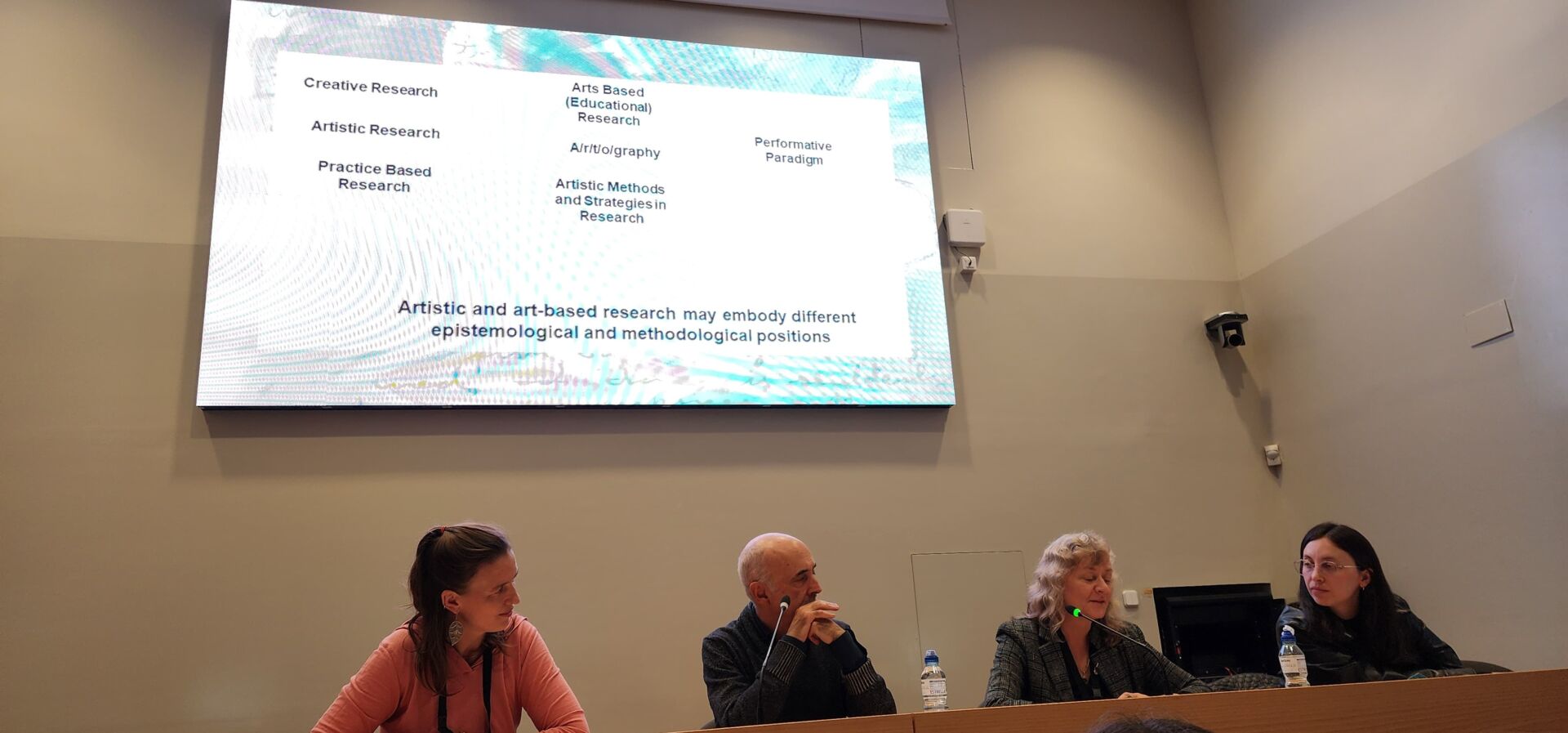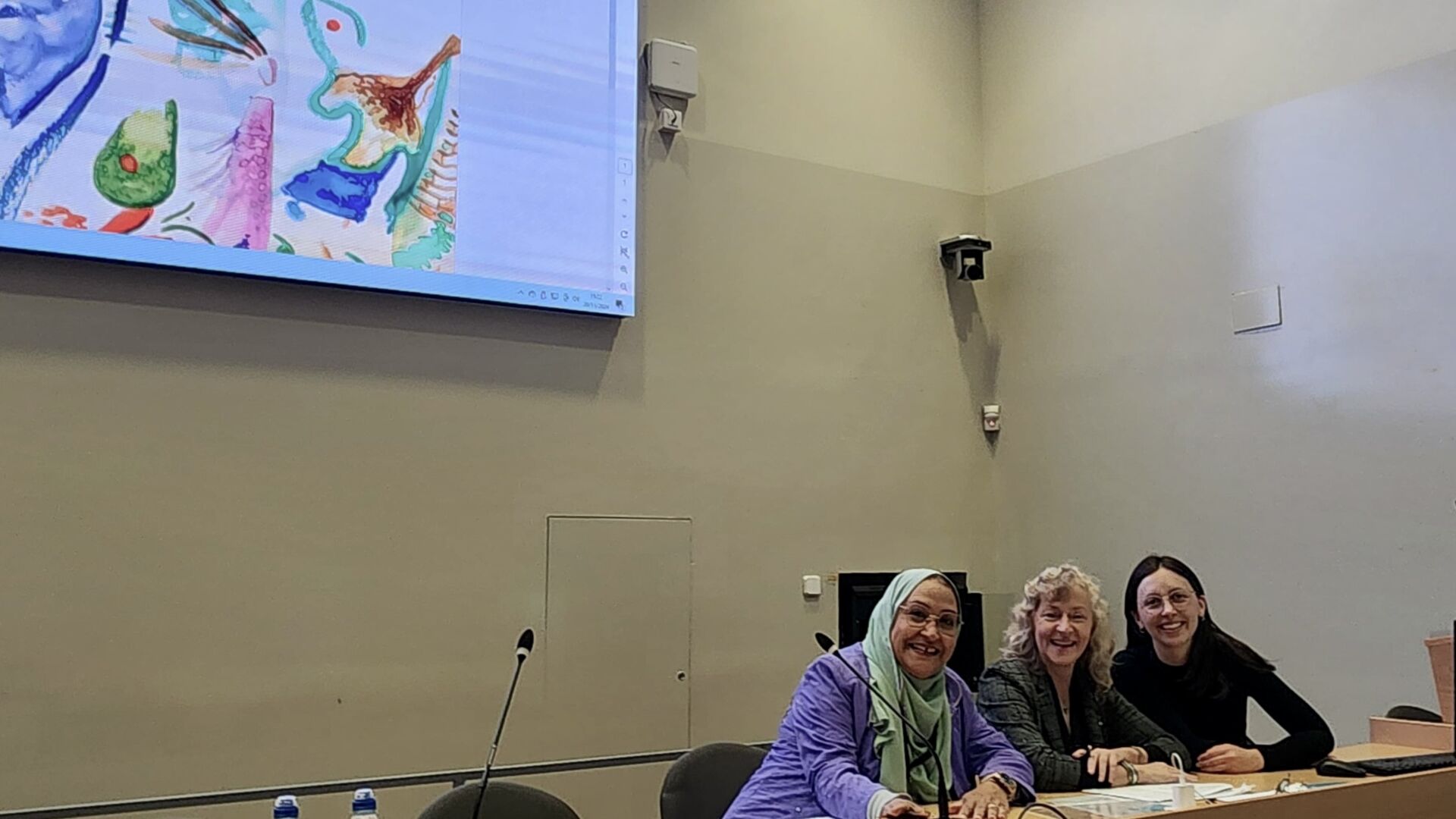Research Team Presents at 8th International Conference on Artistic and Arts-Based Research
The research team, including Anita Sinner, Samia El Sheikh, Susana Vargas-Mejía, and Elly Yazdanpanah, participated in the 8th International Conference on Artistic Research and Arts-Based Research, hosted by the University of Girona from November 20th to 22nd.
This year’s conference focused on fostering democratic, diverse, and accessible approaches to research through artistic and arts-based methodologies. It provided a platform for scholars and practitioners to explore innovative ways of understanding and expressing knowledge, emphasising inclusivity, ethical considerations, and social transformation.
On the first day of the conference, Dr Anita Sinner participated in a roundtable discussion alongside Fernando Hernández-Hernández. Their session, titled Situating Arts-Based Research: Tensions, Possibilities, and Methodologies, explored critical dimensions of arts-based research, engaging the audience in a dialogue about its evolving methodologies and the opportunities it offers for interdisciplinary inquiry.

The team also presented their work, Artwork Scholarship in Action: Podcasting as Glocal Exchange and Public Pedagogy, which highlighted a transnational collaboration between students in Canada and Egypt, facilitated by the Modern Art Museum of Bogotá (MAMBO). This project centred on creating podcasts that explored themes of diaspora and globalisation, demonstrating how media-based exhibitions and public pedagogy can decolonise art education and foster democracy, accessibility, and diversity.
Their presentation showcased the pedagogical potential of podcasts as a multimodal medium, combining text, photos, videos, and chats to capture the collaborative experience. Drawing on students’ and educators’ perspectives, the project illustrated how digital tools can transform traditional educational boundaries, creating a dynamic, experiential, and improvisational learning environment.

Through this work, the team emphasised the importance of embracing living inquiry as a means of extending learning beyond the physical classroom. This approach, rooted in Aoki’s concept of “curriculum-as-lived-experience,” enabled students to engage in a responsive and reflective creative process, showcasing the transformative potential of art and technology in education.
The research team’s contributions align with the conference’s mission to explore diverse and innovative research practices, contributing to the ongoing dialogue about the role of arts-based methodologies in promoting social change and inclusive education.